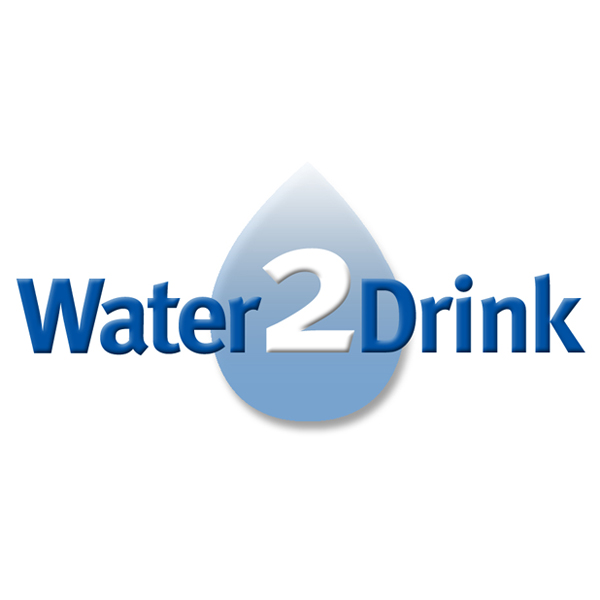
Water2Drink Blog
Breast Cancer and YouFriday, May 23, 2014 - Posted by Water2Drink, in Health, Water News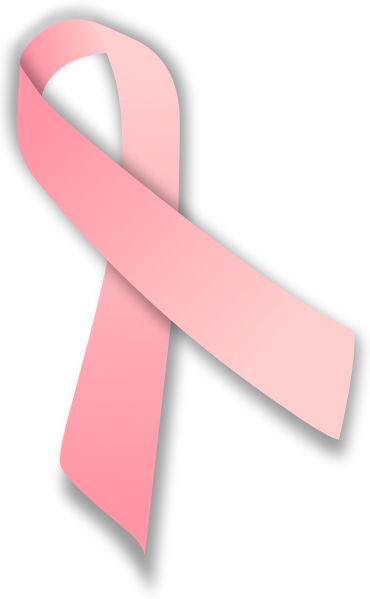
In our modern world, we are surrounded by chemicals and
substances that are commonly used in everyday life. Unfortunately, many common
chemicals we encounter have been found to be carcinogenic and are linked to
cancer, specifically breast cancer. A new study published in the Environmental Health
Perspectives peer-reviewed journal identifies 17 groups of #chemicals that are linked
to breast cancer. These include benzene
and butadiene (found in vehicle exhaust, tobacco smoke, or charred food),
methylene chloride (found in cleaning solvents), flame retardants (found in
treated furniture or rugs), stain-resistant textiles (found in furniture
upholstery), and disinfection byproducts (found in drinking water). Silent Spring, an organization dedicated to identifying and
breaking the links between environmental chemicals and #breastcancer, provides a
list of seven tips you can follow to reduce or eliminate your exposure to
breast carcinogens. #SilentSpring
believes that while science is still discovering how these chemicals affect our
health and our lives, these tips provide actions you can take to begin reducing
your exposure now. #Water2Drink is in full alignment with Multipure’s core
belief of better water for better health. For over forty years, Multipure has produced
the best water filters and water treatment devices in the market. Their solid carbon block technology is
independently tested and certified by #NSF International, and are proven to
reduce many contaminants listed in this study and much more. You can view the Performance Data Sheets that
list the certified reduction of contaminants for all of our products on our
website. A
Multipure solid carbon block Drinking Water System can really make a difference
in the life and health of you and your loved ones. Please contact Water2Drink.com if you have
questions regarding which filter is right for you! |
 0 Comments 0 CommentsTweet |
Take the Multipure Challenge!Monday, May 19, 2014 - Posted by Water2Drink, in Water News, Products
Are you concerned about the quality and safety of the water
you ingest? Tired of buying expensive
bottled water? Unsure of the source of
your bottled water? Concerned about the amount of plastic water bottles in the
environment? If you said yes to any of
these questions, you may be ready to consider buying a water filtration system
for your home or office. As you begin your research into point-of-use water
filtration, #Water2Drink.com is pleased to provide a new resource that will help
you decide which #waterfilter is right for you.
We maintain a Resource Center that contains product performance data,
health information and useful tips that will help you choose the proper filter
for your needs. Recently, we added a new
checklist, “Take the Multipure Challenge,” that can serve as a reference for comparing
Multipure solid carbon block filter systems to other water filtration
technologies.
Not all filters are equal, and Multipure International is an
industry leader in the water filtration market.
The #Multipure water filters with their superior performance are backed
by independent #NSF International testing and certification, and have been
cited as superior products by Consumer Reports and Consumer’s Digest magazines. In addition, Multipure has a 44 year history
of leveraging its extensive research and development expertise to produce a
truly superior solid carbon block water filter. |
 0 Comments 0 CommentsTweet |
Get The Lead Out!Friday, May 9, 2014 - Posted by Water2Drink, in Water News, Water Safety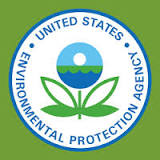
In 2011, the Federal Government enacted the “Reduction of
Lead in Drinking Water Act.” This law went into effect on January 4, 2014. The idea behind the act was to amend the Safe
Drinking Water Act regarding the use of metal fixtures, fittings, pipes, and
other metal components, in order to clarify the "lead free” requirements of plumbing
components. Here’s the Great News:
Multipure’s Drinking Water Systems are in full compliance. #Multipure products are certified for material
safety by NSF International when they are rigorously tested under the NSF/ANSI
Standard 42 testing protocol, and this certification extends to #lead content. As an educated consumer, you need to be aware that all of
the system components that Multipure provides with its’ systems should be
utilized for the installation of your water filtration system. By substituting non-compliant hardware when
making repairs or changes, a consumer could negate the certification testing
provided by the #NSF/ANSI testing protocol. Some consumers believe plastic
fittings are inferior to metal fittings, but that is not the case, particularly
when it comes to leaching harmful contaminants into drinking water. We’ve provided a link to a summary of the Act here. In particular, we recommend you specifically
read the “Frequently Asked Questions” section, which addresses questions raised
by the manufacturing and usage of certain plumbing components that may be used
in your home or office. You can also
find more information about lead in drinking water at the EPA’s website, or by
visiting the #Water2Drink Resource Center to learn how a Multipure Water Filter
works.
|
 1 Comments 1 CommentsTweet |
Celebrate National Drinking Water Week! May 4 - 10Friday, May 2, 2014 - Posted by Water2Drink, in Water News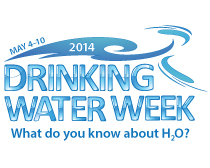
#Holidays are almost a national pastime in this
country. There are the typical national
holidays: New Year’s Day, Independence
Day, Columbus Day. There are the card-industry holidays: Valentine’s Day, Mother’s Day, Halloween. And there are some truly bizarre and unique
holidays too! There is Trivia Day (January 4th), Star Wars Day (May
4th), National Garden Week (June 1-7), and National Peanut Day
(September 13th). One celebration you will want to observe is National Drinking
Water Week! In 1988, the American Water
Works Association brought this event to the attention of the US Government, and
formed a coalition with other associations and the Environmental Protection
Agency (#EPA). This year it falls May 4th
through May 10th. Not only do
you want to drink fresh, clean water, you may want to learn how to protect your
drinking water for life. You may want to
know which states participate in the Drinking Water Watch, which is information
about regulated water systems available online from some state agencies. In honor of #NationalDrinkingWaterWeek, the EPA has recently
posted information and links to more resources to enable consumers to become
more educated about source water protection.
|
 0 Comments 0 CommentsTweet |
Pamper Your PlantsFriday, April 25, 2014 - Posted by Water2Drink, in Health, Products
Spring is here, and #gardencenters are filled with tender
new plants waiting to come home with you.
Why not give them the very best, just like the other members of your
family? The Multipure Aquagrow Garden Water Filter is a declorinator
that brings many benefits to your garden.
By reducing the toxic effects of chlorine in your garden, it can return
the natural balance of your soil, compost or mulch by protecting the soil’s
beneficial bacteria. This promotes
healthy plant nutrition and growth. It
can protect beneficial insect life such as lacewings, #ladybugs, and beneficial
nematodes. It may also enhance the
benefits of non-chemical pest control methods.
The Aquagrow includes a 3-ft. hose saver that connects it to
the garden faucet and provides protection to the unit, allowing for an easy,
no-tools-required installation. |
 0 Comments 0 CommentsTweet |
Open or Closed? Reservoirs, That IsFriday, April 18, 2014 - Posted by Water2Drink, in Water News, Water Safety
Headlines
this week report a young man in #Portland, Oregon was arrested for urinating through
a fence into the #MountTabor Reservoir #5.
Additionally, two other men tried to scale the fence, and one of those
men actually entered the water. While it
might seem like a harmless prank, the city decided to drain the reservoir – all
38 million gallons – because of the type of reservoir. This reservoir, one of five in Portland, is
an open reservoir that holds water that already has been treated and flows
directly into the water mains to customers. You may agree
with the city regarding the dumping of this treated water or you may not. But with an open reservoir, the possibilities
for contamination are endless. Urine
(either human or animal), surrounding land use run off, animal carcasses, or
algal growth may all contribute to reservoir contamination. |
 0 Comments 0 CommentsTweet |
What Are Your Kids Drinking?Friday, April 11, 2014 - Posted by Water2Drink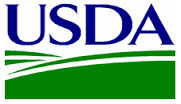
USDA investigators found most schools met the
requirements through the use of water fountains in schools, but the study also
looked at other obstacles that might block students from utilizing the free
drinking water. Students may need permission to get up and move about, they may
need to wait in line or make a special trip to obtain water. It may be impractical for water fountains to
meet the accessibility needs of the students. Schools are taking steps to ensure our nation’s schoolchildren are
provided with their daily recommended amount of water. Are you doing the same? At home, what steps can you take to reinforce
what they are trying to do in the schools?
Is fresh, clean water available at all times to the members of your
household? Easy access to clean drinking
water using a great water filter will address this problem. According to Consumer Reports magazine, a
Multipure Aquaversa (MP750SB) water filter is the best choice for your clean
water needs. You can visit
Water2Drink.com to learn more about this product and purchase one through our
secure online ordering system.
|
 0 Comments 0 CommentsTweet |
New Findings about Arsenic and IntelligenceFriday, April 4, 2014 - Posted by Water2Drink, in Health, Water News
Arsenic, a naturally occurring, tasteless and odorless
metalloid, is recognized by most consumers to be a toxic carcinogen. Arsenic can exist in many inorganic and
organic compounds as well, and researchers and regulators agree that inorganic
arsenic is more of a risk than the organic forms prevalent in the diet. Recently, a study of 272 Maine
schoolchildren might reveal a breakthrough about whether arsenic exposure, even
at low levels, could also lead to reduced intelligence. This five year study conducted by scientists
from Columbia University and the University of New Hampshire showed that even
at low levels, arsenic in drinking water could correlate to as much as 5 or 6
lowered points on IQ tests. “It is the
first study to actually show a difference in IQ points in the U.S. based on
water arsenic levels,” says Prof. Gail Wasserman of Columbia University.
Laboratory testing is available to identify arsenic levels
in your water source. The first place to start would be with your local water
authority. You can also reference the Environmental
Working Group National Drinking Water Database, where you can type in your zip
code and learn more about your local water source.
Multipure Drinking Water Systems have been certified by NSF
International to reduce the widest range of contaminants of health concern.
Multipure’s Aquaperform (MP880) units have been certified by NSF International,
under Standard 53, to reduce Arsenic V.
For more facts about arsenic, click here to see more information on
Water2Drink.com. If you are not sure of
which system you may need, please contact us for assistance in selecting the
one that best suits your needs.
|
 0 Comments 0 CommentsTweet |
Accept No Imitations!Thursday, March 27, 2014 - Posted by Water2Drink, in Water News, Products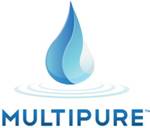
A recent letter from Zachary Rice, President of Multipure
International addresses the importance of buying genuine Multipure replacement
filters: “March, 2014 I have recently heard growing concerns
regarding imitation carbon block filters that are “Multipure compatible”. As we
all know, the water filtration industry is full of incredible potential. There
have always been competing products on the market as well as “knock-offs”
attempting to capitalize on Multipure’s superior products. However, with an
increasing number of companies entering this expanding market, and with the
ease of finding products in today’s information age, these products are more
prevalent and visible than ever.
The simple fact remains that these products are
inferior to Multipure’s certified products. In the end, there are two
options a consumer faces when selecting a drinking water filter for themselves
and their family. The first option is to choose
a Multipure product with broad performance certifications, superior
capabilities, and exceptional quality backed by a lifetime warranty. The second
option is to choose a product without these assurances. Simply review the fine
print, the list of performance claims, and the information available on the
options, and the answer will be as clear as a glass of Multipure water.
Let me provide an example. The CB6 cartridge is
NSF
certified for 67 contaminants, most of which are health concern contaminants
including Lead, VOCs, PCBs, MTBE, and Cysts. An available “knock-off” cartridge
is certified for nothing and adds the following disclaimer: “If you know that
tap water contains a chemical contaminant of health effect, then you may want
to install a specialty filter to remove the contaminant of concern before water
enters this filter.”
If your customer insists on purchasing a
knock-off filter, please have them take the advice of the competition and put a
CB6
filter in place before the knock-off cartridge. My advice would be to save
themselves the frustration, risk, and cost of an inferior product, and just
stick with a product we all have confidence in: Multipure.
Sincerely, Zachary Rice
#noimitations #Multipure #NSFcertified |
 0 Comments 0 CommentsTweet |
Where's The Water?Friday, March 21, 2014 - Posted by Water2Drink, in Water News, Water Safety
Everyone knows of the lack of water in arid areas like Los
Angeles, CA and Las Vegas, NV. But what about Lincoln, NE? Cleveland, OH? Miami,
FL? Washington, DC? San Antonio, TX? If you didn’t think these cities would be
at risk for water availability, you might be surprised. All of these cities are on the list of 11 US
cities that have dramatically higher water usage than replenishment, according
to NOAA’s Cooperative Institute for Research in Environmental Sciences (CIRES)
2013 study. A recent article in the online magazine Water Conditioning & Purification (January 2014) outlines the
global supply and demand and how these cities suffer the effects of their water
demands. Only a small fraction of the
water used in the US (0.4 percent) is used for drinking. Flushing toilets account for 27 gallons per
person per day! While we may want to
believe that fresh clean water will always be available, many deficiencies in
our water supply may be disguised in at-risk areas. “Water-stressed regions frequently suffer from multiple
economic and public health adversities, including food and water quality
issues,” states the wpconline.com article.
Many water-stressed cities receive their water from locations that are
many miles away, and it may travel in open canals or waterways that are subject
to many levels of contamination. The Huffington Post also wrote about the risks for these 11
cities, citing the CIRES report and additional sources. If you live near or in these cities, you may
want to begin looking at your water usage.
For the health and safety of yourself and loved ones, consider using a
point-of-use water filtration system to ensure the quality of the water in your
home. You may want to begin talking to
your neighbors about what conservation efforts may be in place in your
area. It is going to take awareness and
action by all of us to change the trajectory of these vulnerable cities. #Miami #WashingtonDC #SanAntonio #SaltLakeCity #Lincoln #Atlanta #SanFrancisco #ElPaso #Houston #Cleveland |
 0 Comments 0 CommentsTweet |
Top Tips for Safe Drinking Water!Sunday, March 9, 2014 - Posted by Water2Drink
Recently, the Environmental Working Group (EWG) published a “Guide
to Safe Drinking Water.” This Guide provides a list of top tips for safely staying
hydrated. Water2Drink.com applauds the list, as each tip provides consumer
education without using the scare tactics that are so typical in many media stories. The EWG provides well researched, sensible
information that the consumer can learn from and easily apply in their own
life. There is, however, one point that Water2Drink would like to
clarify. In the article, the EWG states,
“Install a reverse osmosis filter if you can afford it, to remove contaminants
that carbon filters can’t eliminate, like arsenic and perchlorate (rocket fuel).” While Water2Drink offers the Multipure AquaRO Reverse
Osmosis drinking water filtration system, you do not necessarily need to
install an RO system to address arsenic contamination in your water. The Aquaperform family (MP880 series) of
Multipure filters is NSF-certified as highly effective in reducing arsenic
contamination in municipal water sources. You can review the Aquaperform Performance
Data Sheet here to see the many contaminants that are addressed by the Aquaperform
family of water filtration systems.
Before installing any water filtration system in your home,
Water2Drink recommends that you educate yourself about the quality of your
water source. You can contact your local
water utility to request a copy of your annual water report. You also can use the EWG Tap Water Quality
Database as another resource for information. |
 0 Comments 0 CommentsTweet |
Let It Rain!Friday, February 28, 2014 - Posted by Water2Drink, in Water News, Products, Water Safety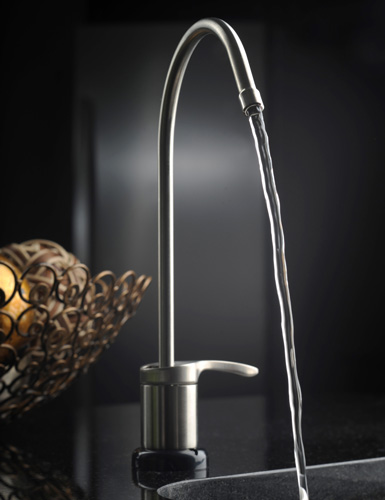
Finally, some good news! This weekend’s forecast for most of
California calls for heavy rain and snow over most of the state. While this is very
welcome news for the drought-stricken Golden State, it may also create flooding and
debris flows. Rain runoff and flooding
pose the potential for elevated levels of contaminants ending up in the surface
and ground waters that are the source of residential drinking water. For these reasons, it’s important to have a fresh, high
quality water filter available that will strip contaminants from your water
source. Water2Drink.com sells only the highest quality Multipure drinking water filtration systems that are NSF-certified and have a
lifetime warranty from the manufacturer.
If you are unsure of what contaminants are reduced by a
Multipure drinking water system, you can check out the NSF certifications list
on our website by clicking here. |
 0 Comments 0 CommentsTweet |
Gambling With Your Health?Friday, February 21, 2014 - Posted by Water2Drink, in Water News, Water Safety
A major chemical spill in Charleston, WV. A coal ash spill
in Virginia and North Carolina. A dike failure in Tennessee. Flooded farms that
spread fecal matter and fertilizers. Ongoing droughts. And every day, the
nation adds to the chronic, ongoing pollution of its drinking water with PPCPs
(pharmaceuticals and personal care products).
While your water source may be safe today, are these events gambling
with your health? National Geographic, one of the nation’s most trusted
sources for educational information, wrote a thought-provoking article that outlines the severity of these occurrences. All of the above events have happened within the United States
in the past decade alone. While the
majority of water treatment facilities are safe, it only takes an accidental leak
such as the January 2014 MCHM chemical spill in Charleston to overwhelm the
treatment facility. A coal ash contamination
may be even worse, such as the 2008 Tennessee dike failure and the 2000 Kentucky
pond failure. Coal ash contains heavy metals,
arsenic, thallium, and other dangerous toxins.
Not only do these events immediately impact the environment (such as
contaminating a nearby waterway), there is also lingering toxicity in the soil
and nearby freshwater and groundwater sources. Even the nation’s aging water transportation infrastructure
adds to the problem. “In the
American Society of Civil Engineers 2013 Report Card for America's
Infrastructure, the nation's drinking water infrastructure was given a D grade
for aging pipes, some of which date back to the Civil War. ‘At the dawn of the
21st century, much of our drinking water infrastructure is nearing the end of
its useful life,’" states the National Geographic article. There is something you can do to ensure you and your family
are protected. Educate yourself on the water quality being delivered to your
home. Start by looking at the National Tap Water Quality Database. Contact your local water authority and request
a copy of your local water report. Use an NSF-Certified point-of-use water filtration system like the Multipure family of products. You CAN beat the odds and
protect your home against unexpected water contamination threats. #CharlestonWV #CoalAshSpill |
 0 Comments 0 CommentsTweet |
Twice Is Nice!Thursday, February 13, 2014 - Posted by Water2Drink, in Water News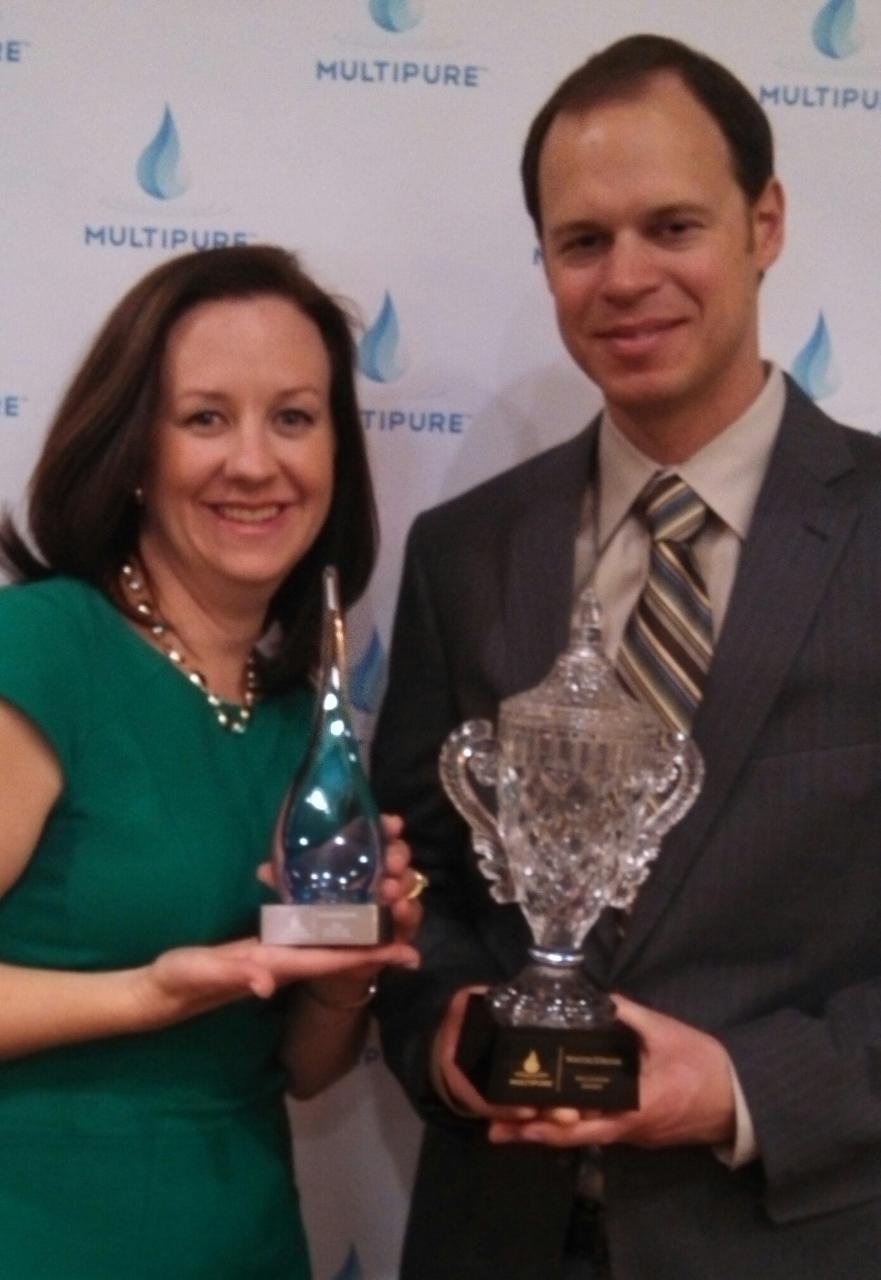
Water2Drink.com is proud to announce that not only we have
been awarded the Millennium Award (announced in November, 2013), we have been
named the 2014 Sales Team of the Year! The announcement reads, “Each year, Multipure recognizes Distributors
for their exceptional dedication and effort in their Multipure businesses.
Multipure’s National Awards serve as a formal acknowledgement of this success
and entrepreneurship. We would like to congratulate the following Distributors
for demonstrating superior ability in key aspects of Distributorship, from
recruiting, to product sales, to network growth:
2014 Sales Team of the Year – Water2Drink”
The photo above is Multipure’s President
Zachary Rice, along with Executive Vice President, Jennifer Rice, awarding both
the Millennium Award and the 2014 Sales Team of the Year Award to Water2Drink.
At Water2Drink,
we’d like to thank you, our Customers, for trusting us with your health, and
the health of your loved ones. It is our
personal mission to provide you with the absolute best in Multipure products,
product performance, and our own personalized customer service. Our recognition is a direct reflection of the
relationship we have developed with you, our loyal Customers, over the past 10
years. We look forward to continuing to provide you many more years of
outstanding customer service. Visit www.Water2Drink.com to see why we are once
again “Sales Team of the Year”! |
 0 Comments 0 CommentsTweet |
Fouling the Waters?Tuesday, February 4, 2014 - Posted by Water2Drink, in Water News, Water Safety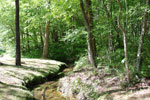
There can be political divide in Washington, D.C., but when
a gas-drilling operation threatens the waters of the nation’s capital, it is a
good sign to see citizens, water utilities, and federal agencies working
together to understand the risks involved. Recently, in a WashingtonPost.com column by Robert McCartney
(read it here),
it is reported that the gas industry is pursuing the gas drilling method known
as “fracking” in the George Washington National Forest. This forest includes the Appalachian
Mountains where the headwaters of the Potomac River are located. However, local water utilities, local cities
and counties near the forest, the Environmental Protection Agency, and citizens
are suggesting a decision be delayed until the release of a major study on the
effects of fracking by the EPA. If you believe this is just another problem within the political
halls of D.C., or an “inside the Beltway” issue, consider that the decision
reached about fracking in National Forests may impact the future of other
national forests. The George Washington National
Forest is near to adopting a new 15-year management plan, which may affect
decisions made in other national forests throughout the country. Awareness and involvement is key. Seek out information regarding fracking near
your water source, and get involved in local efforts that support your
position. If you are or could be affected by fracking, you can protect yourself
and your loved ones by using an effective point-of-use water filtration system,
like the ones listed here. #fracking #GeorgeWashingtonNationalForest #PotomacRiver |
 0 Comments 0 CommentsTweet |
Multipure and 4-Methylcyclohexane MethanolTuesday, January 21, 2014 - Posted by Water2Drink, in Health, Water News, Water Safety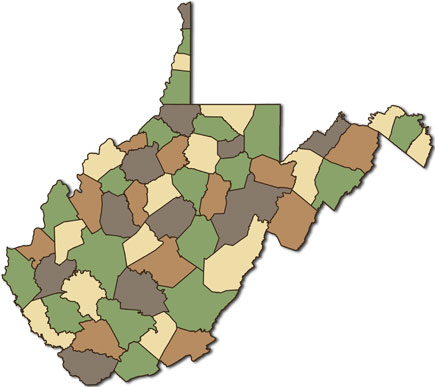 People everywhere are stunned to learn about the recent water pollution disaster in West Virginia. How could this happen? We all know that accidents happen, but with better oversight they often could have been avoided. But what about the unfortunate citizens of West Virginia who were directly affected by the toxic spill of 4-Methylcyclohexane Methanol into their water supply? What now? Water2Drink's customers who are using or considering purchasing a Multipure Drinking Water Systems want to know if they can use their Multipure water filter to help address this extraordinary water contamination problem. When asked this question, Multipure's resident expert, Multipure VP of Technical Services, Andrew Fenwick, PhD, offered the following comments: "We do not specifically test for the reduction of 4-Methylcyclohexane Methanol. It is not an organic compound included by NSF VOC surrogate testing, nor is there a reduction standard/protocol included in NSF Standards 42 or 53. With that said, based on the chemical nature of 4-Methylcyclohexane Methanol and results of past VOC testing, I expect that these filters would be effective at reducing the concentration of 4-Methylcyclohexane Methanol in drinking water (along with innumerous other analogous organic contaminants). We are unable to quantify the reduction efficiency or longevity/lifetime, as these characteristics depend on the concentration of the compound in the influent water, the water chemistry (TOC, pH, TDS, etc.), and the compound’s unique reduction characteristics (i.e., its affinity for the filter media). "But please note that, more than usual for topics like this, and based on the context of the question, I strongly caution the use of carbon block filters based on 'the concentration of the compound in the influent water.' These filters are highly effective at reducing numerous organic contaminants, but typically these contaminants are present in ppb (ug/L) concentrations. Higher concentrations (high ppb to ppm; i.e., high ug/L to mg/L) or above potentially suffer two ill-effects: inadequate contact time (more contaminant needs more contact with the filter media) and inadequate capacity (with adsorption technology, there is a limit to the amount of active sites before the filters become saturated/exhausted). Without knowing the concentration (or range in concentrations), I would not recommend the use of these filters as the primary treatment method. After primary treatment/remediation has taken place, I think these filters are an excellent technology to ensure reduction of residual 4-Methylcyclohexane Methanol in the distribution system and provide cleaner water for the long term." For more information on the contaminant reduction capabilities of Multipure Drinking Water Systems, please visit https://www.water2drink.com/resource-center/how-it-works-multipure-water-contaminant-reduction.asp.
|
 0 Comments 0 CommentsTweet |
We're A Winner!Thursday, December 5, 2013 - Posted by Water2Drink
Water2Drink.com is proud to announce that we have been
awarded The Millennium Award! Multipure
announced the milestone award in November, 2013. The announcement reads, “Multipure would like to give special
recognition and congratulations to Distributor Water2Drink
for selling their 2,000th Multipure Drinking Water System and
achieving the Millennium Award! This rare accomplishment is a testament to
their hard work, their dedication, and their commitment to providing the best
water to people everywhere!
All of us at Multipure thank Water2Drink for their efforts, and look forward to their bright future of continuing sales!”
At Water2Drink, we work very hard to provide our Customers the absolute best in Multipure products, product performance, and customer service. We have achieved this level of recognition only with the confidence and support of our loyal Customers. We thank each of you, our Customers, for your part in our success, and we look forward to providing you many more years of outstanding customer service.
|
 1 Comments 1 CommentsTweet |
Leaded or Unleaded?Monday, November 18, 2013 - Posted by Water2Drink, in Health, Water Safety
That used to be the question at gasoline pumps up until the
1970’s. Leaded gasoline was phased out
about 1975. But since that time, lead
has continued to be identified in other products such as paint, canned food,
glazed ceramics, leaded crystal, mini-blinds, and imported food. With increased awareness of lead poisoning, most
of these products have been modified to reduce or eliminate lead. However, lead can still be found in drinking
water! According to information from the New York State Dept. of
Health, lead seldom occurs naturally in water supplies. Rather, it primarily enters the water system
as materials containing lead are corroded in the water distribution system, and
also by the use of lead-based solder within plumbing products. (You can read the detailed NY State Health
Dept. information regarding sources of lead by clicking here.) It has long been recommended to avoid ingesting lead to avoid
lead poisoning. Children in particular are most commonly affected by lead
poisoning, but you do continue to accumulate lead in your body as an adult unless
you actively avoid lead exposure. One
way to do this is to use a water filtration system that is NSF-certified for
lead reduction. All Multipure Drinking Water
Filtration Systems are certified for lead reduction as well as other contaminants,
such as mercury and VOC’s (volatile organic compounds). Do your research and verify that your water
filtration system is NSF-certified!
You can find Multipure’s complete line of certified water
filtration systems at www.Water2Drink.com. Insist on “unleaded” – fresh, filtered water
for yourself and your loved ones! |
 0 Comments 0 CommentsTweet |
How Good Are Your Pipes?Friday, November 8, 2013, in Water News, Water Safety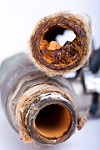 In focusing on the improvement of your drinking water, an
often overlooked topic is the condition of your water supply distribution
system. Most cities had their greatest
population growth and infrastructure expansions during the late 1800’s, around
World War I, through the 1920’s, and post-World War II. The materials, lifespan, and even the manufacturing
processes of the pipes laid during these times, all affect the quality of the
water delivered to your home today. The Water Science and Technology Board released their first
report of The Committee
on Public Water Supply Distribution Systems: Assessing and Reducing Risks
in 2005, which studied the public water supply distribution systems and their
potential risks. Since the report was requested by the EPA, it was written toward
a more governmental perspective. However, we feel our customers should begin to
learn more about our aging water distribution infrastructure, specifically by
reading Section
2, Trends Relevant to the Deterioration of Drinking Water in Distribution
Systems. Understanding the potential
problems can lead you to make a more educated decision about taking personal
control of your water filtration choice. |
 0 Comments 0 CommentsTweet |
What Do You Drink When You Travel?Friday, October 11, 2013 - Posted by Water2Drink, in ProductsIf you often travel by air, you want to keep hydrated to
lessen the effects of jet lag. One of
the best known ways to keep hydrated is to drink plenty of water before and
during your flights. In the past, airplane water was notorious for containing
dangerous levels of bacteria such as coliform, which indicates the presence of
E. coli. Fortunately, in response to the
EPA’s initiatives to reduce or eliminate coliform on planes, most airlines now
serve only bottled water by the glass. One
or two small glasses are not nearly enough water to consume on a typical four-hour
flight. Alternatively, many travelers will
buy bottled water in the airport to carry onto the plane. But both of these actions require enormous
use of natural resources to produce and distribute the plastic bottles, and adds
to the ever-increasing problem of plastic in the environment. A cost effective, environment-friendly option is to carry
your own water bottle that filters the water as you drink it. Multipure has introduced the wriggle™
Portable Filtered Water Bottle to address this issue. A traveler can carry the empty bottle through
security checkpoints, then fill it from any water fountain or water faucet. The wriggle™ treats many contaminants, just
like Multipure’s industry leading water filtration systems, available in a
portable 30-fl oz. design. Water2Drink.com
offers the wriggle™ in either blue or gray, or in a two-pack (one of each color). 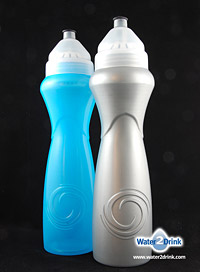
#airtravel |
 0 Comments 0 CommentsTweet |



